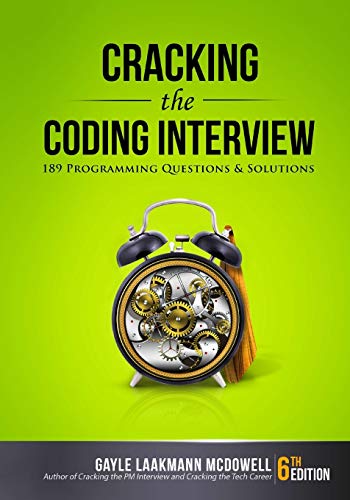【2025年】「正規表現」のおすすめ 本 149選!人気ランキング
- 独学プログラマー Python言語の基本から仕事のやり方まで
- リーダブルコード ―より良いコードを書くためのシンプルで実践的なテクニック (Theory in practice)
- プログラムはこうして作られる プログラマの頭の中をのぞいてみよう
- 詳説 正規表現 第3版
- 改訂3版 これからはじめるプログラミング 基礎の基礎
- はじめての上流工程をやり抜くための本~システム化企画から要件定義、基本設計まで (エンジニア道場)
- おうちで学べるプログラミングのきほん
- 退屈なことはPythonにやらせよう 第2版 ―ノンプログラマーにもできる自動化処理プログラミング
- プロを目指す人のためのRuby入門[改訂2版] 言語仕様からテスト駆動開発・デバッグ技法まで (Software Design plus)
- Structure and Interpretation of Computer Programs, second edition (MIT Electrical Engineering and Computer Science)
本書は、理解しやすいコードを書くための方法を紹介しています。具体的には、名前の付け方やコメントの書き方、制御フローや論理式の単純化、コードの再構成、テストの書き方などについて、楽しいイラストを交えて説明しています。著者はボズウェルとフォシェで、須藤功平氏による日本語版解説も収録されています。
本書は、株式会社セガのゲームプログラマが初心者向けに書いたプログラミング入門書です。一般的な入門書が提供しない根本的な考え方を学べる内容で、簡単なゲーム制作を通じてプログラム作成に必要な思考法を身につけることを目的としています。著者はプログラミング未経験者や基礎を再学習したい人々に向けて、具体的な手法を示しています。
『これからはじめるプログラミング 基礎の基礎』の改訂第3版は、プログラミング入門者向けに書かれた定評ある書籍です。内容は現代の読者に合わせて見直され、プログラミング環境や言語もアップデートされています。目指すゴールは旧版と同じで、プログラミングの基本知識や実践的なステップを学ぶことができます。この本は、プログラミングを始める人にとっての「最初に読むべき入門書」とされています。
本書は、システム化企画や要件定義、基本設計などの上流工程に必要なスキルや心構えについて解説しています。単に実装スキルだけでなく、議論をリードし、関係者の合意を得る能力、全体を見通す視点が求められます。上流工程を初めて行う際の準備やスキルアップ方法についても具体的なアドバイスが提供されています。著者は、システム開発の専門家であり、若手エンジニアの育成に力を入れています。
この入門書は、初学者や非プログラマー向けにプログラムの動作原理を「実習」と「講義」を通じて解説しています。内容はプログラミングの基本、コンピュータやOSの役割、プログラミング言語の基礎、JavaScriptやC言語の学習、オブジェクト指向モデリングなど多岐にわたります。著者は河村進氏で、実業界や研究機関での豊富な開発経験を持つ専門家です。
本書は、業務効率化や生産性向上を目指すビジネスパーソンに支持されるPythonを用いた自動化の指南書の改訂版です。WordやExcel、PDF文書の処理、Webダウンロード、メールの送受信など、日常業務の煩雑な作業を自動化する方法を解説しています。改訂版ではGmailやGoogleスプレッドシートの操作、Pythonの最新モジュールへの対応が追加され、演習問題も増補されています。また、日本語版にはEXEファイル作成方法の付録も収録されています。著者はソフトウェア開発者のアル・スウェイガートと、情報工学の博士課程を修了した相川愛三です。
本書はRubyプログラミング言語の仕様や実践的な知識を解説した入門書で、豊富なサンプルコードと例題を通じて文法やプログラミングの流れを学べます。2017年に初版が発行され、2020年にはRuby 3.0の新機能に対応した改訂版が登場。初心者向けにわかりやすく説明されており、基礎からプロの技術まで幅広くカバーしています。著者は伊藤淳一氏で、プログラミング教育にも力を入れています。
この文章は、第二版の内容紹介と目次を示しています。第二版では、計算モデルにおける時間の扱いに焦点を当て、状態を持つオブジェクトや並列プログラミング、関数型プログラミング、遅延評価、非決定性などの新しいテーマが強調されています。目次には、手続きやデータによる抽象の構築、オブジェクトと状態、超言語的抽象、レジスタ計算機に関する章が含まれています。
この書籍は、Webエンジニアを目指す人のために、HTML、CSS、JavaScriptの基本スキルを習得するための入門書です。内容は、Web開発環境の整備から始まり、基本的なHTMLとCSSの学習、スマートフォン対応、CSSフレームワーク(Bootstrap)、JavaScript、イベントドリブンの概念、そしてAjax通信についても触れています。
本書は、Rubyプログラミングの初心者向けに文法の基本から実践的な内容までを丁寧に解説しています。学習プロセスは予習、実践、復習の3段階で構成されており、練習問題を通じて理解度を測定できます。WindowsとmacOSに対応しており、著者は竹馬力、監修は山田祥寛です。目次には環境構築、基本文法、データ処理、エラー処理などが含まれています。
この書籍は、JavaScriptを初めて学ぶ人や過去に挫折した人向けに、実践的なサンプルを通じて基礎力を身につけることを目的としています。楽しいサンプルを提供し、初学者がつまずくポイントを丁寧に解説することで、挫折を防ぐ内容になっています。第2版では新しいECMA Scriptの機能を取り入れ、情報を最新のものにアップデートしています。特にWeb業界に興味がある人やフロントエンドエンジニアを目指す人におすすめです。著者はUIデザイナーであり、実務経験を活かした内容が特徴です。
この本は、プログラミング初心者向けに、PHPとMySQLを楽しく学べる方法を提供しています。秋葉原での速習コースを基に、挫折しやすいポイントを分析し、1日でWeb画面と簡単なデータベースを作成できる内容です。目次には心の準備、パソコン設定、プログラミング、データベースの各章があり、著者は豊富な経験を持つ谷藤賢一氏です。
高橋麻奈の「やさしいC」は、プログラミング初心者向けのC言語教科書で、シリーズ累計100万部を突破しました。新装丁で読みやすく改訂され、豊富なイラストやサンプルプログラムを用いて基本を丁寧に解説しています。新しいC言語仕様やVisual Studio 2017への対応も含まれ、初心者がしっかりとC言語を学べる内容です。著者は東京大学卒の高橋麻奈です。
この書籍は、豊富なサンプルと練習問題を通じてプログラミングの基礎を徹底的に学ぶことができる内容です。目次には、文法、入出力、条件分岐、繰り返し処理、配列、ファイル入出力、文字列操作、関数構築、構造体、ポインタなどの重要なトピックが含まれています。著者は西村広光で、神奈川工科大学の講師として画像認識技術などを研究しています。
この文章は、書籍の目次と著者情報を紹介しています。書籍は三部構成で、第一部ではアルゴリズムやプログラムの構造について、第二部ではパフォーマンスやアルゴリズムデザインのテクニックについて、第三部では具体的な問題解決の作品を扱っています。著者の小林健一郎は東京大学で物理学を学び、情報科学を専門とする教授です。
この文章は、書籍の目次と著者情報を紹介しています。目次には、ソフトウェアエンジニアリングやシステムデザインに関する様々なテーマが列挙されており、著者は滝沢徹、牧野祐子、富澤昇の3名で、それぞれの学歴と現在の職業が記載されています。
本書は、プログラムの洗練に必要な判断を学ぶためのケーススタディを提供しています。内容はクリーンコード、意味のある名前、関数、コメント、書式化、オブジェクトとデータ構造、エラー処理、境界、単体テスト、クラス、システム、創発、同時並行性、継続的改良、JUnitの内部、リファクタリング、経験則など多岐にわたります。プログラミングは動作するだけでは完結せず、質の向上が重要であることを強調しています。
Winner of the 2011 Jolt Excellence Award! Getting software released to users is often a painful, risky, and time-consuming process. This groundbreaking new book sets out the principles and technical practices that enable rapid, incremental delivery of high quality, valuable new functionality to users. Through automation of the build, deployment, and testing process, and improved collaboration between developers, testers, and operations, delivery teams can get changes released in a matter of hours- sometimes even minutes-no matter what the size of a project or the complexity of its code base. Jez Humble and David Farley begin by presenting the foundations of a rapid, reliable, low-risk delivery process. Next, they introduce the "deployment pipeline," an automated process for managing all changes, from check-in to release. Finally, they discuss the "ecosystem" needed to support continuous delivery, from infrastructure, data and configuration management to governance. The authors introduce state-of-the-art techniques, including automated infrastructure management and data migration, and the use of virtualization. For each, they review key issues, identify best practices, and demonstrate how to mitigate risks. Coverage includes * Automating all facets of building, integrating, testing, and deploying software * Implementing deployment pipelines at team and organizational levels * Improving collaboration between developers, testers, and operations * Developing features incrementally on large and distributed teams * Implementing an effective configuration management strategy * Automating acceptance testing, from analysis to implementation * Testing capacity and other non-functional requirements * Implementing continuous deployment and zero-downtime releases * Managing infrastructure, data, components and dependencies * Navigating risk management, compliance, and auditing Whether you're a developer, systems administrator, tester, or manager, this book will help your organization move from idea to release faster than ever-so you can deliver value to your business rapidly and reliably. Foreword by Martin Fowler Preface Acknowledgements About the Authors Part I Foundations 1 The Problem of Delivering Software 2 Configuration Management 3 Continuous Integration 4 Implementing a Testing Strategy Part II The Deployment Pipeline 5 Anatomy of the Deployment Pipeline 6 Build and deployment scripting 7 Commit Testing Stage 8 Automated Acceptance Testing 9 Testing Non-Functional Requirements 10 Deploying and Releasing Applications Part III The Delivery Ecosystem 11 Managing infrastructure and environments 12 Managing Data 13 Managing components and dependencies 14 Advanced version control 15 Managing Continuous Delivery Bibliography Index
本書は、なぜ多くの成功者がプログラミングの基本を学んでいるのか、その理由と効率的な学習方法を紹介しています。著名人たちも支持する「世界最良の学習メソッド」を用いて、小学生から大人まで誰でも楽しめる内容です。プログラミングの基礎知識は将来的に役立つスキルであり、初心者向けの学習サービスやプログラミング言語の選び方も解説しています。プログラミングを効率よく学びたい人や教育に興味がある人におすすめの一冊です。
この書籍は、JavaScriptの基本を学ぶためのガイドで、プログラムの書き方や文法、HTMLやCSSの操作方法、プログラムの読み方、jQueryの使い方を解説しています。著者はフロントエンドエンジニアで、Webアプリケーションの開発に携わっています。内容は初心者向けに構成されており、90行のコードを通じて基本を学べるようになっています。
本書は、複数のプログラマが関わるプロジェクトの成功にはチームの協力が不可欠であることを強調し、著者がエンジニアとしての経験を基に「エンジニアが他人とうまくやる」ためのコツを紹介します。内容は「チーム文化の作り方」や「有害な人への対処法」など多岐にわたり、楽しい逸話を交えつつエンジニアの社会性を解説しています。
『教養としてのプログラミング講座』は、プログラミングの基礎から応用までを解説し、プログラマーの思考法を学べる一冊です。著者は国認定の「天才プログラマー」であり、プログラミングを「誰もが学ぶべき教養」と位置づけています。小中学校でのプログラミング必修化を受け、内容を増補して再刊行されました。目次には、プログラミングの基本、役立つテクニック、未来の展望などが含まれています。
著者松尾豊は、日本の人工知能研究の第一人者として、最新技術「ディープラーニング」の進展とその影響を探求し、知能や人間の本質について問い直します。本書では、人工知能の歴史やブームを振り返りながら、技術の進化が人類にもたらす可能性と危機について論じています。
この書籍は、オールカラーでプログラミングの基本を学びながら、小さなプログラムを作成して実践的なスキルを身につける内容です。講師が勘違いしやすいポイントをフォローしつつ、条件分岐や関数、繰り返し処理、HTML/CSSの操作、ユーザー対応、データ処理、フォトギャラリーやYouTube動画ギャラリーの作成などを学びます。著者はWebエンジニアの岩田宇史氏です。
本書は、世界中のプログラマによる97本のエッセイを収録し、プログラミングの重要な要素や技術、学び方についての経験を共有しています。著者たちは、コーディングやテスト、設計原則についての洞察を提供し、プログラマに勇気と新たな気づきをもたらします。日本語版には、著名なプログラマによる10本の書き下ろしも含まれています。
本書は、プログラミングを独学で学ぶための効果的な学習方法を紹介しています。プログラミングに興味があるが何から始めればよいかわからない人や、学習がうまくいかないと感じている人に向けて、具体的な学習ステップや作品別の学習ルートを提案しています。著者は自身の経験をもとに、適切な学習法が成果に繋がることを強調し、プログラミングをスキルとして身につける手助けをすることを目的としています。
「シス管系女子」は、Linuxのコマンド操作を漫画で楽しく学べる書籍で、5万部を突破した人気シリーズの新エピソードを含んでいます。主人公の新人社員利奈と先輩社員大野のやり取りを通じて、シェルスクリプトやサーバー管理の基本が分かりやすく解説されており、実際の仕事で役立つ情報が満載です。各エピソードでは、リモート操作やファイル管理、コマンドの復帰など、具体的な操作方法が紹介されています。
本書は、コンピューター技術の基礎知識や重要な原則を学ぶためのシリーズの第4弾であり、10年後にも通用する基本を身につけることを目的としています。目次には、コンピュータの原則、プログラミング、アルゴリズム、データ構造、オブジェクト指向プログラミング、データベース、ネットワーク、暗号化、XMLの理解など、多岐にわたるテーマが含まれています。著者は矢沢久雄氏で、豊富な経験を持つプログラミングの専門家です。
この書籍は、モダンな開発フローを通じて継続的改善を実現し、効率的なプロジェクトを支えるノウハウを提供しています。チーム開発に必要なツールの導入方法や使い方に焦点を当て、具体的な問題を例に挙げながら解説しています。目次にはチーム開発の概要、問題点、バージョン管理、チケット管理、継続的インテグレーション、デプロイの自動化、リグレッションテストが含まれています。著者はソフトウェア開発者やインフラエンジニアとしての経験を持つ専門家たちです。
この本は、入門者向けにJavaScriptの基礎を簡潔に解説し、手を動かしながら学べる形式を採用しています。著者はリッチコンテンツ制作を得意とするWebデザイン会社で、実績も豊富です。プログラミングの知識がなくても、高品質な機能を簡単に作成できる内容です。目次には、JavaScriptの基本から条件分岐、関数、オブジェクト、イベント、スライドショー作成、jQuery、Web APIなどが含まれています。
本書は、Webプログラミングを学びたい初心者向けに、PHPやJavaScriptを例に基本的な知識を提供する全面改訂版です。インターネットやWebの仕組み、プログラミングの基本、データベース、ライブラリ、セキュリティなど幅広いテーマをカバーし、実践的な技術を紹介します。新たにチーム開発やコンテナ技術についての章も追加され、現代の開発環境に対応しています。
この書籍は、初心者向けにLinuxサーバーの構築と運用の基本を解説しています。内容はサーバーの基本知識から始まり、Ubuntuの操作、Webサーバーの利用、リモート操作、設定変更、プログラム実行、公開・管理まで幅広くカバーされています。著者はテクニカルライターの小笠原種高です。
本書は、Pythonを使用したデータ収集技術「スクレイピング」の入門書であり、待望の第2版が登場しました。著者はヤギ博士とフタバちゃんと共に、ファイルのダウンロード、HTML解析、データの読み書き、APIを利用したデータ収集、データの可視化方法を解説します。Python 3.12に対応し、各種ライブラリやオープンデータのアップデートが含まれています。初心者向けに対話形式で基礎知識を学べる内容で、実践的なサンプルも用意されています。対象はデータ収集や分析に興味がある初心者です。
この書籍は、良いコードを迅速に生み出すための共同開発の手法を実践的に学べる内容です。目次には、GitやGitHubの導入、操作方法、Pull Requestの使い方、連携ツール、開発フローなどが含まれています。著者の大塚弘記はアジャイル開発の専門家で、企業におけるWebアプリケーション開発の指導を行っています。
本書は、プログラミング言語Pythonの初心者向け入門書で、プログラミングの基本概念や文法をわかりやすく解説しています。未経験者や挫折した人、スキルアップを目指す人に適しており、実際に手を動かしながら学べる演習も豊富に含まれています。豊かなカラー図解とイラストで、プログラミングの「読み方」「書き方」「しくみ」を理解できる内容です。著者はテクニカルライターで、主にプログラミングやセキュリティに関する記事を執筆しています。
本書『アルゴリズムC 新版』は、2004年に刊行された名著の復刊で、世界的に評価されているアルゴリズムの教科書です。直感的な説明や豊富な図、具体的なコードが特徴で、研究者や学生に必携の一冊です。内容は基礎、データ構造、整列、探索の4部構成で、続刊『第5部グラフアルゴリズム』の刊行も決定しています。著者は電気通信大学の名誉教授らで構成されています。
この文章は、Chad Fowlerによる書籍の目次と著者情報を紹介しています。目次は市場の選択、製品への投資、実行、マーケティング、研鑽の重要性についての章で構成されています。著者は著名なソフトウェア開発者であり、Ruby言語の専門家として知られています。彼は多くの企業での経験を持ち、ソフトウェア関連の書籍も執筆しています。
この書籍は、JavaScriptをマスターした中上級者向けに、高度なテクニックや知識を提供しています。デザインパターンやコーディングパターンを通じて、JavaScriptのスキルを向上させる方法を紹介しており、プログラマーが次のステップに進むための貴重な情報源となっています。著者はYahoo!のエンジニアで、実践的なアプリケーション開発に携わってきた経験を活かしています。
For courses in Unix Systems Programming, Unix System Administration, and as a supplemental text for courses in Advanced Networks and Systems Programming. This readable and comprehensive text clearly explains Unix programming and structure by addressing the solid fundamentals of Unix and providing different solutions to problems. All ideas and principles are introduced in the context of a practical problem, and excellent use is made of illustrations and listings in the text. Projects are solved by the development of complete programs, which are clearly commented on and integrated with explanations in the text. (NOTE: Each chapter includes a section stating its objectives and a summary.) 1. Unix Systems Programming: The Big Picture. 2. Users, Files, and the Manual: Who Is First. 3. Directories and File Properties: Looking through ls. 4. Focus on File Systems: Writing pwd. 5. Connection Control: Studying stty. 6. Programming for Humans: Terminal Control and Signals. 7. Event-Driven Programming: Writing a Video Game. 8. Processes and Programs: Studying sh. 9. A Programmable Shell: Shell Variables and the Environment. 10. I/O Redirection and Pipes. 11. Connecting to Processes Near and Far: Servers and Sockets. 12. Connections and Protocols: Writing a Web Server. 13. Programming with Datagrams: A License Server. 14. Threads: Concurrent Functions. 15. IPC Roundup: Can We Talk?
本書は、Linuxの頻出コマンドを効率的に学ぶために設計されています。特に、実務で役立つコマンドや関連知識を厳選し、理解を深めるために「由来」や「なぜ?」を解説。さらに、「200問」の演習問題を通じて記憶に定着させるアプローチを採用しています。著者は教育を重視するソフトウェアエンジニアで、プログラミング教育に豊富な経験があります。Linuxコマンドを習得することで、生産性を向上させることが期待されます。
著者池澤あやかが、プログラミングを学ぶ方法を紹介する書籍を執筆。文系や女子でも楽しめるプログラミングの魅力や学習法、実践的な入り口を提案し、プログラミング的思考を身につける方法を解説している。彼女は女優としてのキャリアを持ちつつ、プログラマとしても注目されている。
「Pythonふりがなプログラミング」は、プログラムの読み方を詳細に解説し、漢文訓読の手法を取り入れた新しいPython入門書です。プログラミング初心者が理解しやすいように内容を充実させ、データ分析の章も追加されています。Pythonの基本を学びたい人や過去に挫折した人におすすめです。
この本は、Linux初心者向けに、特にWindowsユーザーが理解しやすいようにLinuxの使い方を解説しています。豊富な写真と図を用いて基本操作からスマホやクラウドとの連携までを網羅し、人気の「Ubuntu 22.04 LTS」を基に最新トレンドも紹介しています。すべての内容は2027年4月までサポートされるUbuntuで動作検証済みです。記事は「日経Linux」から再編集されたものです。
『独習Python』は、プログラミング初学者向けのPython入門書で、著者は山田祥寛氏です。本書は、手を動かして学ぶスタイルを重視し、Pythonの基本から応用までを体系的に学べる内容となっています。解説、例題、理解度チェックの3ステップで、基礎知識がない人でも理解しやすい構成です。プログラミング初心者や再入門者におすすめの一冊です。目次には、Pythonの基本、演算子、制御構文、標準ライブラリ、ユーザー定義関数、オブジェクト指向構文などが含まれています。
Pythonをしっかり学びたい人向けの本格的な入門書です。基礎から応用まで幅広いトピックをカバーしており、実際に手を動かしながら理解を深められるよう工夫されています。独習スタイルに特化しているため、自分のペースで着実に学びたい人におすすめ。豊富なコード例や練習問題もあり、プログラミングの実力を着実に高めることができます。
最初にお読みください ユーザーに考えさせない ユーザーは"実際には"どんな風にウェブを使っているのか 「看板」デザイン入門 動物、植物、それとも鉱物? 不必要な言葉を省く 道路標識とパンくず 「トップページは難しい」と自覚するところから始める 「きっと仲良くやっていけるさ」 1日10円でできるユーザビリティテスト 礼儀としてのユーザビリティ アクセシビリティ、CSSそして皆さんについて 助けて!ウチのボスが○○しろって言うんです
この本は、プログラミング教育の重要性を説き、子どもたちに論理的思考や創造力を育む方法を紹介しています。著者は、企業の成功にプログラミングが不可欠であることを強調し、親子で楽しく学ぶ方法やプログラミング教室の現状、基礎を理解させるためのアプローチを提供しています。著者は松林弘治で、技術と教育に関する豊富な経験を持つ専門家です。
この書籍は、Webサイト制作の決定版としてリニューアルされ、HTMLとCSSの基本から最新技術までを体系的に学べる内容です。著者Manaは、Webデザインの専門家であり、初心者向けに手を動かしながら学べるテクニックを提供しています。モバイルファーストやアニメーションなどのトレンドも取り入れ、5年間の最新情報が追加されています。本書は、Webサイト制作を始めたい人や美しいデザインを学びたい人に最適です。
本書は、Linuxプログラミングの入門書であり、Linuxの仕組みを理解し、プログラムを作成するための基礎を学ぶことを目的としています。内容は、Linuxの基本概念から始まり、システムコールやライブラリ関数を用いた具体的なコマンドの作成、さらにはネットワークプログラミングに至るまで幅広くカバーしています。著者は、読者がLinuxの世界を理解し、プログラミング技術を習得できるよう導いています。
この書籍は、現代人にとっての基礎教養としてプログラミングの入門を提供します。難しい数式は不要で、まずは紙と鉛筆を使って学ぶことが推奨されています。目次には、プログラムを身につけるコツ、プログラムの設計方法、コンピュータの機能、実際のプログラミング手法が含まれています。著者は山本貴光で、文筆家やゲーム作家として活動しています。
初心者がプログラミングを学びやすい構成が魅力。Pythonの基本的な文法から実際にコードを書く過程まで、わかりやすい解説でスムーズに学べます。豊富な例題や演習が用意されているため、しっかりと理解を深めながら進めることができ、実践的なスキルが身につく点がポイントです。初めてPythonに触れる人でも安心して学べます。
ディープラーニングの概要は分かっているし機械学習はある程度理解しているつもりだけど、ディープラーニングの中身はちゃんと理解できていない人にぜひ読んで欲しい書籍。ディープラーニングは一旦これ1冊読んでおけば問題なし。複雑で難しい印象だったディープラーニングがこれを読むだけで一気に身近なものになる。
@@SHEQu
本書は、日本オラクルが主催するJavaプログラマ試験のBronze資格に対応したテキストと問題集で、初心者向けにわかりやすく解説されています。著者は多くのJava試験本を執筆しており、各章には練習問題と模擬試験が2回分収録されています。サンプルコードはダウンロード可能で、要点チェックシートも付いています。プログラミングの基礎からオブジェクト指向まで幅広くカバーしており、初学者でも学びやすい内容となっています。
Pythonの基礎をしっかりと学べる構成になっていて、プログラミング初心者にも取り組みやすい内容。基本的な文法から実際に使えるスクリプトまで、ステップバイステップで解説されているため、無理なく進められます。増補改訂版として新たなトピックも追加されており、実践的なスキルを習得したい人にぴったりです。
Pythonを学びはじめる際に最初に読む本として最適。非常に分かりやすく基礎の基礎から学べる。
この書籍は、30,000部を超えるベストセラーで、6年ぶりに全面リニューアルされた日本で最も売れているJavaScriptの本です。ECMAScript 2015に基づく新しい記法や基本的な文法、オブジェクト指向構文、Ajax、クライアントサイド開発、テスト、ドキュメンテーション、コーディング規約など、現場で必要な知識を網羅しています。JavaScript開発者にとって必携の一冊です。著者は山田祥寛で、経済学部卒業後にフリーライターに転身し、技術に関する執筆活動を行っています。
本書は、システム管理者向けの情報を網羅した改訂版の書籍で、全2巻から成ります。特にLinuxに関する内容が強化されており、Volume 1ではシステム管理の基本原則、UNIXの構造、管理ツール、ネットワーク管理、セキュリティなどを扱っています。対象システムはRed Hat LinuxやSolarisなどですが、多くのテクニックは他のシステムにも適用可能です。著者はシステム管理の専門家であり、翻訳者や教育者としても活動しています。
本書は、Pythonの基本から応用までを幅広く解説しており、特にデータマイニングやディープラーニングに焦点を当てています。ファイル操作やWebスクレイピング、テキストマイニング、GUIアプリの作成など、実践的なテクニックを豊富に紹介し、新たな外部ライブラリに関する章も追加されています。初心者から大規模開発まで対応した内容です。
本書は、JavaScriptを利用するWebプログラマ向けの実践的なテクニックやノウハウをまとめた逆引き集です。基本構文や新記法、オブジェクト指向、DOM操作、ブラウザオブジェクト、開発ツールなど、幅広いトピックをカバーし、初心者から中級者まで役立つ内容が提供されています。著者は実務経験に基づき、つまづきやすいポイントを解説し、JavaScriptをより活用したい方におすすめの一冊です。
本書は、最新のUbuntu 18.04 LTSに対応したサーバー用の入門書です。Linuxをサーバーとして利用する際のハードルが低くなった現在、特にUbuntuは多くのクラウドサービスで使用されています。UbuntuサーバーはGUIがなくコマンド操作が必要ですが、本書ではインストールからパッケージ管理、各種サーバーの構築方法までを基礎から詳しく解説しています。Linux初心者やUbuntu未経験者に最適な内容です。著者はLinuxやセキュリティの専門家、中島能和氏です。
初心者向けにプログラミングの基本を会話形式で楽しく学べる本です。プログラムの仕組みがイメージしやすく、キャラクターとのやり取りを通じて、複雑な概念もスムーズに理解できる内容になってます。プログラミングに全く触れたことがない人でも、無理なく始められる工夫がいっぱいで、Pythonの基礎を楽しみながら身につけたい人におすすめ。
『プログラムはなぜ動くのか』の改訂第3版は、プログラムの動作原理をわかりやすく解説し、基礎知識を身につけることを目的としています。内容は新しい製品やツールに更新され、初心者でも理解しやすいように加筆されています。特に、C言語と新たにPythonを用いた機械学習に関する章が追加されており、プログラミングの本質を探求することができます。全体を通して、プログラムの仕組みや環境について詳しく説明されています。
Getting Real details the business, design, programming, and marketing principles of 37signals. The book is packed with keep-it-simple insights, contrarian points of view, and unconventional approaches to software design. This is not a technical book or a design tutorial, it's a book of ideas. Anyone working on a web app - including entrepreneurs, designers, programmers, executives, or marketers - will find value and inspiration in this book. 37signals used the Getting Real process to launch five successful web-based applications (Basecamp, Campfire, Backpack, Writeboard, Ta-da List), and Ruby on Rails, an open-source web application framework, in just two years with no outside funding, no debt, and only 7 people (distributed across 7 time zones). Over 500,000 people around the world use these applications to get things done. Now you can find out how they did it and how you can do it too. It's not as hard as you think if you Get Real.
この書籍は、Pythonプログラマー向けにデータ構造やアルゴリズムの理解を深め、実際のコードを通じてスキルアップを図るための必須のリソースです。内容は、データ構造や探索・ソートアルゴリズムに関する実践的な知識を提供し、著者は東京大学出身のプログラマで、ソフトウェア開発や教育に従事しています。
本書は、Pythonを用いてExcel作業やその他のパソコン仕事を自動化する方法を紹介しています。プログラミング初心者向けに、実践的な例題を通じて自動化の知識を丁寧に解説し、難しい理論は使わずにすぐ始められる内容になっています。Excelだけでなく、メールやWebの自動化も扱い、業務効率化の手助けをします。著者は20年以上の経験を持つ技術士で、実務に役立つプログラムを提供しています。
Peter Seibel interviews 15 of the most interesting computer programmers alive today in Coders at Work, offering a companion volume to Apress's highly acclaimed best-seller Founders at Work by Jessica Livingston. As the words "at work" suggest, Peter Seibel focuses on how his interviewees tackle the day-to-day work of programming, while revealing much more, like how they became great programmers, how they recognize programming talent in others, and what kinds of problems they find most interesting. Hundreds of people have suggested names of programmers to interview on the Coders at Work web site: www.codersatwork.com. The complete list was 284 names. Having digested everyone's feedback, we selected 15 folks who've been kind enough to agree to be interviewed: * Frances Allen: Pioneer in optimizing compilers, first woman to win the Turing Award (2006) and first female IBM fellow * Joe Armstrong: Inventor of Erlang * Joshua Bloch: Author of the Java collections framework, now at Google * Bernie Cosell: One of the main software guys behind the original ARPANET IMPs and a master debugger * Douglas Crockford: JSON founder, JavaScript architect at Yahoo! * L. Peter Deutsch: Author of Ghostscript, implementer of Smalltalk-80 at Xerox PARC and Lisp 1.5 on PDP-1 * Brendan Eich: Inventor of JavaScript, CTO of the Mozilla Corporation * Brad Fitzpatrick: Writer of LiveJournal, OpenID, memcached, and Perlbal * Dan Ingalls: Smalltalk implementor and designer * Simon Peyton Jones: Coinventor of Haskell and lead designer of Glasgow Haskell Compiler * Donald Knuth: Author of The Art of Computer Programming and creator of TeX * Peter Norvig: Director of Research at Google and author of the standard text on AI * Guy Steele: Coinventor of Scheme and part of the Common Lisp Gang of Five, currently working on Fortress * Ken Thompson: Inventor of UNIX * Jamie Zawinski: Author of XEmacs and early Netscape/Mozilla hacker What you'll learnHow the best programmers in the world do their jobs! Who this book is for Programmers interested in the point of view of leaders in the field. Programmers looking for approaches that work for some of these outstanding programmers. Table of Contents * Jamie Zawinski * Brad Fitzpatrick * Douglas Crockford * Brendan Eich * Joshua Bloch * Joe Armstrong * Simon Peyton Jones * Peter Norvig * Guy Steele * Dan Ingalls * L Peter Deutsch * Ken Thompson * Fran Allen * Bernie Cosell * Donald Knuth
『入門 bash 第3版』は、前版から7年が経過し、bashの機能が大幅に強化されたことを反映した改訂版です。Linux/Unixユーザーだけでなく、Cygwinを使うWindowsユーザーやMac OS Xユーザーも対象に、新機能やオプションを解説しています。目次には、bashの基礎からシェルスクリプティング、デバッグ方法まで広範な内容が含まれています。著者は情報テクノロジーの専門家で、デジタル化プロジェクトにも取り組んでいます。
「正規表現」に関するよくある質問
Q. 「正規表現」の本を選ぶポイントは?
A. 「正規表現」の本を選ぶ際は、まず自分の目的やレベルに合ったものを選ぶことが重要です。当サイトではインターネット上の口コミや評判をもとに独自スコアでランク付けしているので、まずは上位の本からチェックするのがおすすめです。
Q. 初心者におすすめの「正規表現」本は?
A. 当サイトのランキングでは『独学プログラマー Python言語の基本から仕事のやり方まで』が最も評価が高くおすすめです。口コミや評判をもとにしたスコアで149冊の中から厳選しています。
Q. 「正規表現」の本は何冊読むべき?
A. まずは1冊を深く読み込むことをおすすめします。当サイトのランキング上位から1冊選び、その後に違う視点や切り口の本を2〜3冊読むと、より理解が深まります。
Q. 「正規表現」のランキングはどのように決めていますか?
A. 当サイトではインターネット上の口コミや評判をベースに集計し、独自のスコアでランク付けしています。実際に読んだ人の評価を反映しているため、信頼性の高いランキングとなっています。









![『プロを目指す人のためのRuby入門[改訂2版] 言語仕様からテスト駆動開発・デバッグ技法まで (Software Design plus)』の表紙](https://m.media-amazon.com/images/I/41LHdQuWVcL._SL500_.jpg)














































![『ちゃんと使える力を身につける Webとプログラミングのきほんのきほん [改訂2版]』の表紙](https://m.media-amazon.com/images/I/51nse6Cy6jL._SL500_.jpg)





















![『【Amazon.co.jp限定】1冊ですべて身につくHTML & CSSとWebデザイン入門講座[第2版] (特典:「Webデザイナーのポートフォリオの作り方入門講座」データ配信)』の表紙](https://m.media-amazon.com/images/I/51skMJ-OVcL._SL500_.jpg)









![『Pythonスタートブック [増補改訂版]』の表紙](https://m.media-amazon.com/images/I/51fE+EY9yuL._SL500_.jpg)








































































